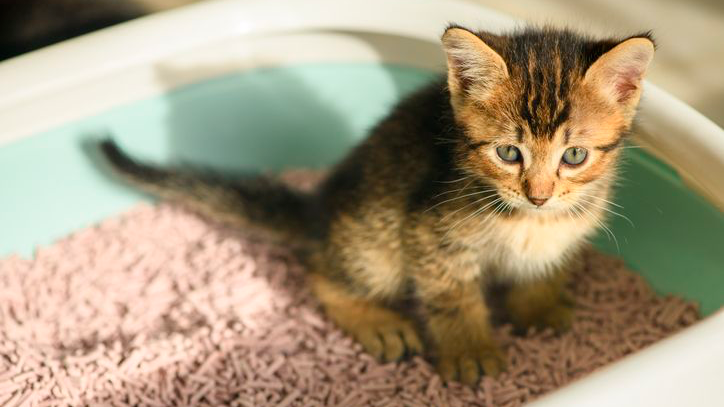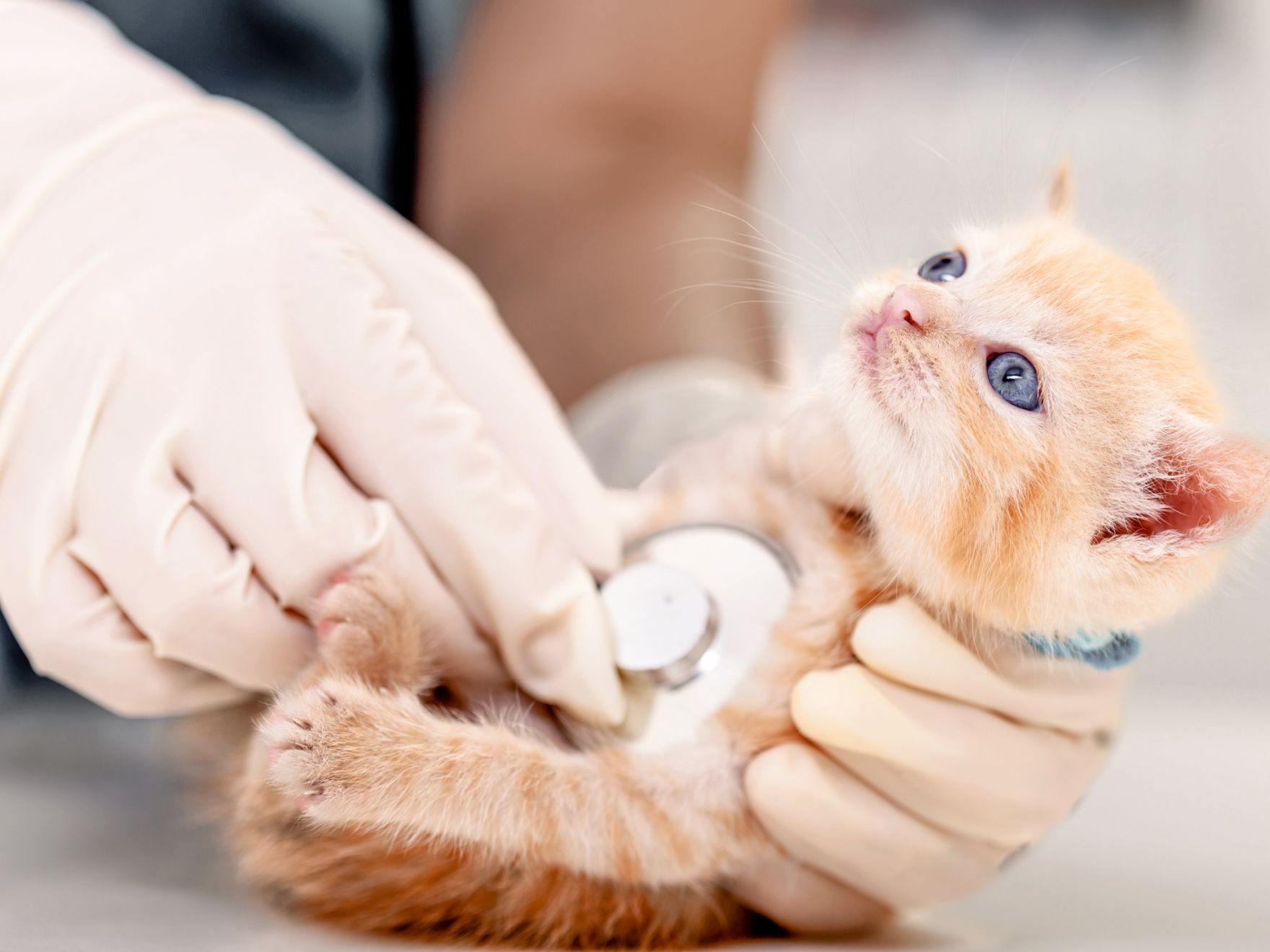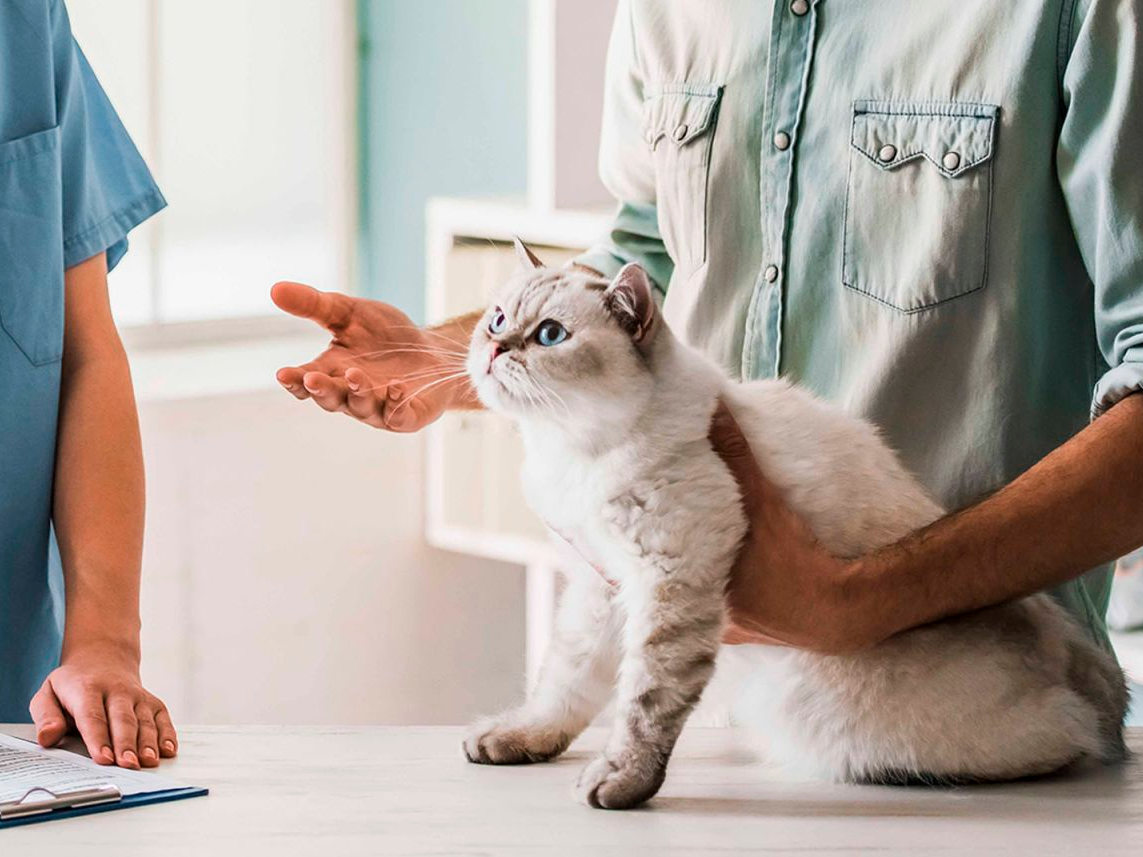When and how to deworm your kitten?
Worms and intestinal parasites are so common in kittens that it’s a good idea to have read up on what to look out for and treatment options ahead of time.
How do kittens get worms? Kittens can pick up worms from their mother’s milk while nursing, from the soil in your garden, or even from ingesting the eggs in faeces they encounter outdoors. Luckily, several effective treatment options are available to eliminate the worms in your kitten, making it relatively easy for your vet to deal with them.
The most common types of worms veterinarians find in kittens are roundworms, tapeworms and hookworms. Leaving the worms untreated can have serious health risks for young kittens with immature immune systems. Maintaining a vet-suggested deworming schedule, which could include regular faecal tests, is part of good health management and will help you keep your kitten free of worms and parasites.
Here’s the information you need to know to help prevent infestations of worms in your kitten.
Article

Could my kitten have worms? Symptoms to keep in mind
If your kitten has picked up worms, you may notice the following symptoms:
- Weight loss
- Slow growth
- Diarrhoea that may contain blood
- Vomiting
- Coughing or hacking with no hairball
- A pot belly
- Appetite loss
- Lethargy
- You find worm segments that resemble a white flat string or grain of rice, or segments in your kitten’s stool or in the fur around the anus
- Worms or worm segments in your kitten’s bed
Anytime you notice those symptoms, it’s time to visit the vet for a health check.

How do kittens get worms? It’s easier than you think
Kittens have many opportunities to pick up worms in their everyday life, right from the start. Your kitten can get worms from eggs transmitted through their mother’s milk or from her stool in the litter box.
Contaminated areas like soil, an infected cat’s fur or even their bed can also harbour worm eggs. There could be larvae camping out on their paws from the litter box or from walking around your garden that can easily become ingested during grooming.
Your kitten can pick up worms in other ways, too.
- Kittens and cats groom each other—faecal matter can be present on fur and accidentally ingested during a mutual grooming session.
- Worm eggs and larvae can be present in the muscle tissue and intestines of secondary hosts if your kitten hunts or picks them up outside. Eggs and larvae will infect your kitten if they ingest the prey.
- Fleas and ticks also carry worm eggs. If your kitten swallows a flea, the eggs will enter their gastrointestinal (GI) tract, where they will mature and perhaps cause problems.
- Many worms are zoonotic; they can spread between animals and humans.
The types of worms commonly found in kittens
Roundworms are long worms that enter your kitten as eggs and grow to adulthood in the intestines. Kittens can pick them up from their mother’s milk, ingesting the faeces of an infected cat, or carrying or eating a secondary host like an infected bird, mouse, or insect.
- You may notice worms or worm segments in your kitten’s stools. They look like seeds or grains of rice.
- Symptoms of roundworms are lethargy, pot belly, vomiting, diarrhoea, poor growth, appetite loss and weight loss.
- A faecal test identifies roundworms. Treatment is a broad-spectrum deworming medication prescribed by your veterinarian.
- Roundworms can be passed around between animals and humans.
Hookworms can be transmitted by the mother cat by way of the placenta or through nursing. Later, they can be transmitted through contaminated faeces. Hookworms ‘hook’ to the intestinal lining and feed off your kitten’s blood, competing for the nutrients your cat needs to grow and develop. A large infestation can cause severe anaemia and be life-threatening to your kitten.
- The eggs and segments can stick to fur and paws from contaminated environments, and be ingested during grooming.
- Faecal tests are used to identify hookworms. Treatment is a broad-spectrum deworming medication prescribed by a veterinarian.
- Unfortunately, the treatment only kills adult hookworms. Additional tests and treatments may be necessary since the medication can leave eggs behind.
- Humans can accidentally ingest hookworm eggs or larvae by handling an infected cat’s faeces, or even by sitting on grass frequented by an infected animal. The worms can enter your system if you touch your face or don’t wash your hands.
Tapeworms are long flat worms with multiple segments, each one containing its own reproductive organs and harbouring eggs. Fleas. birds and rodents ingest the worm eggs and become carriers. If your kitten eats one of the carriers, the eggs transfer to your kitten where they hatch and live inside their intestines.
- If your kitten eats a flea (or bird or rodent) carrying tapeworm eggs, the eggs enter their GI tract, growing into adult tapeworms.
- Once ingested, tapeworms attach to your kitten’s intestines, living off blood and the nutrients your kitten needs to develop healthily.
- You may see the segments of a tapeworm in your kitten’s stool. They look like a piece of string or a long grain of rice. You may also see them on the fur near the tail area or where your kitten sleeps.
- Tapeworms move around inside your kitten causing itchiness around the anus. You may see your kitten ‘scooting’ across the floor to relieve the itchy sensation.
- Faecal tests identify tapeworms. Treatment is a prescription-only tablet or injection administered by your veterinarian.
- Humans can get tapeworms from eating contaminated meats or accidentally ingesting a flea or larvae from their environment.
Roundworms are long worms that enter your kitten as eggs and grow to adulthood in the intestines. Kittens can pick them up from their mother’s milk, ingesting the faeces of an infected cat, or carrying or eating a secondary host like an infected bird, mouse, or insect.
- You may notice worms or worm segments in your kitten’s stools. They look like seeds or grains of rice.
- Symptoms of roundworms are lethargy, pot belly, vomiting, diarrhoea, poor growth, appetite loss and weight loss.
- A faecal test identifies roundworms. Treatment is a broad-spectrum deworming medication prescribed by your veterinarian.
- Roundworms can be passed around between animals and humans.
Hookworms can be transmitted by the mother cat by way of the placenta or through nursing. Later, they can be transmitted through contaminated faeces. Hookworms ‘hook’ to the intestinal lining and feed off your kitten’s blood, competing for the nutrients your cat needs to grow and develop. A large infestation can cause severe anaemia and be life-threatening to your kitten.
- The eggs and segments can stick to fur and paws from contaminated environments, and be ingested during grooming.
- Faecal tests are used to identify hookworms. Treatment is a broad-spectrum deworming medication prescribed by a veterinarian.
- Unfortunately, the treatment only kills adult hookworms. Additional tests and treatments may be necessary since the medication can leave eggs behind.
- Humans can accidentally ingest hookworm eggs or larvae by handling an infected cat’s faeces, or even by sitting on grass frequented by an infected animal. The worms can enter your system if you touch your face or don’t wash your hands.
Tapeworms are long flat worms with multiple segments, each one containing its own reproductive organs and harbouring eggs. Fleas. birds and rodents ingest the worm eggs and become carriers. If your kitten eats one of the carriers, the eggs transfer to your kitten where they hatch and live inside their intestines.
- If your kitten eats a flea (or bird or rodent) carrying tapeworm eggs, the eggs enter their GI tract, growing into adult tapeworms.
- Once ingested, tapeworms attach to your kitten’s intestines, living off blood and the nutrients your kitten needs to develop healthily.
- You may see the segments of a tapeworm in your kitten’s stool. They look like a piece of string or a long grain of rice. You may also see them on the fur near the tail area or where your kitten sleeps.
- Tapeworms move around inside your kitten causing itchiness around the anus. You may see your kitten ‘scooting’ across the floor to relieve the itchy sensation.
- Faecal tests identify tapeworms. Treatment is a prescription-only tablet or injection administered by your veterinarian.
- Humans can get tapeworms from eating contaminated meats or accidentally ingesting a flea or larvae from their environment.
When to deworm kittens
Kittens can begin the deworming schedule at around two to three weeks of age. This recommendation differs by country. Your veterinarian is your best resource for determining your kitten’s deworming schedule. It will also be based on your kitten’s age, size, health and lifestyle.
Most breeders and rescues start deworming before kittens leave for their new homes. If your kitten did not receive deworming medication, schedule a vet appointment to begin the deworming process.

How to get rid of worms in kittens?
Most cats will end up with worms at some point. Regular tests and a deworming schedule are the best plans of prevention for your kitten.
That being said, many people misunderstand deworming medication’s capabilities. The medication kills any adult worms present in your kitten’s GI tract at the time of deworming. It won’t prevent a reinfestation in the future. If a flea gets inside your house and your kitten swallows it while grooming, they will become reinfected with worms. This is the reason kittens need regular deworming, even if they are indoor cats.
The best preventative measures to keep worms at bay are:
- Maintain a regular deworming schedule supervised by your vet
- Keep your kitten’s immunisations current
- Clean their litter box daily and check your garden as well.
- Limit outings at night
- Don’t allow your kitten to eat prey
- Use flea and tick treatments regularly, especially during the summer or warmer months

The best deworming medicine for kittens. Does it exist?
There is no one best deworming medicine for kittens. It depends on the specific worms present. Age, weight and health also factor in. They are available in several formats, such as tablets, paste or liquid, on-the-spot drops to be applied directly to your kitten’s neck, tasty treats, and injections.
Most medications are broad spectrum, meaning they can rid your kitten of several types of worms and parasites. After a faecal test determines the worms present in your kitten, your vet will prescribe the right medicine for your kitten. Don’t hesitate to ask for instruction on administering the treatment.

What to expect after deworming your kitten?
Deworming medication is quite safe, and side effects are rare. You may notice dead worms in your kitten's stools after the medicine is administered. This normal process can take a week or two but will end once all the adult worms are eliminated.
Other side effects of the medicine are an upset stomach, diarrhoea, or vomiting. When your kitten takes a deworming medicine, the medicine kills all the worms at once. This can cause intestinal inflammation and discomfort depending on the amount of worms present. This resolves itself in a day or two and is common. A large infestation can cause an intestinal blockage, which can be life-threatening. Always talk to your vet if you have concerns or if your kitten is really uncomfortable.

Natural and over-the-counter deworming remedies for kittens
Some people use turmeric or coconut oil to rid their kittens of worms. This is not a good idea. Different worms require different treatments, so they must be identified to treat them properly. A faecal test is the only way to correctly identify them in your kitten. Home remedies may eliminate some worms, but since worms can cause severe health issues for small kittens, your vet is your best resource for keeping your kitten healthy.
Some kitten owners try over-the-counter deworming medications. These aren’t always effective. The dosage can be incorrect, or the active ingredients may be ineffective.
Related articles
Like & share this page

